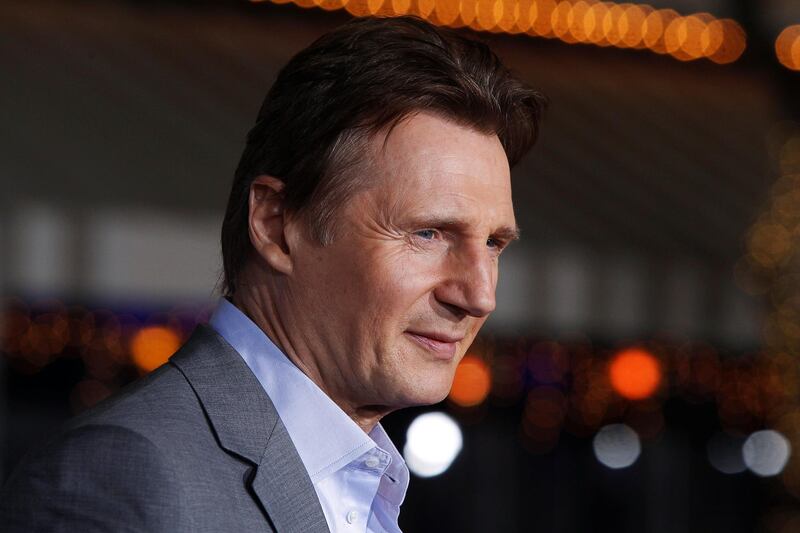Over the past few days, the actor Liam Neeson has been widely condemned for his recent admission that 40 years ago, after hearing that a friend had been raped, he asked what colour her attacker was, then, on finding out that the assailant was black, set out on a week-long mission to exact murderous retribution on anyone fitting that description.
Fortunately, Neeson failed in this aim, has expressed deep remorse and insists that he is not a racist. For many, these expressions of regret have not been enough. Having made such a provocative statement, unbidden, in an interview related to a new film, based on themes of violent revenge, he certainly has some more nuanced explaining to do.
However, some have sprung to his defence. The actress Whoopi Goldberg says that Neeson is no bigot, while the British footballer John Barnes commended him for his candour, writing in The Guardian: "Many are happy to ignore the fact he was admitting to a shameful, backward way of thinking, which he now knows is wrong." He concluded that honest discussions of such matters are vital.
Another point in Barnes's article caught my eye. "I'm sure that Neeson is as unconsciously racially biased as the next person. Myself included. This is perfectly understandable when you consider the value and worth ascribed to different groups by our society," he wrote. "This is deeply ingrained in our history, literature, news reporting and beyond…"
It made me question – given the stereotypes, caricatures and one-sided presentations of history we grow up with and continue to be surrounded by – is it possible for any of us, despite our best intentions, not to, consciously or unconsciously view individuals and groups through the prism of race?
That we expend so much time thinking about matters of identity politics is an advance in itself. Much has changed since the 1970s and early 1980s, when offensive stereotyping was pervasive. Just look at the popular culture of the time. "Irish" jokes – in which my father's fellow citizens were portrayed as universally stupid – were a staple of mainland-British humour, TV comedies such as Love Thy Neighbour mined the most reductive racial tropes for laughs, and the now startlingly problematic Black & White Minstrel Show was broadcast to millions until 1978.
There is also no doubt that despite the raised awareness of structural and institutional racism and the long-term effects of historical oppression, people of colour still suffer appallingly and disproportionately from racial profiling in both the western world and further afield. Neeson's comments have reminded everyone of that.
While the brazenly offensive caricatures of 30-plus years ago are unacceptable today, negative representations of discreet racial groups have not been wholly consigned to the past. A number of prominent black actors, including Idris Elba and David Oyelowo, have complained about the lack of on-screen diversity on both television and film, and of the hackneyed gang member and bad-guy roles given to the small number of black actors who do make it through the audition process.
Suggestive "othering" also remains mainstream. In Peter Jackson's Lord of the Rings movies, the characters from the East who come to the aid of the Dark Lord Sauron are by their armour, skin colour and even musical instruments unmistakable as a cypher for the Asiatic horde. In countless thrillers and TV series, the threat comes from Muslim terrorists. Does no one think this has any effect on the perceptions of Europeans and Americans?
But racist attitudes are often inherited. Can one condemn with no possibility of mitigation those whose prejudices stem from their parents, who were, after all, their role models? Of course, adults are responsible for thinking for themselves, but if the overwhelming majority of one's peers and elders view another country or ethnicity negatively, it can be hard – and sometimes hazardous – for individuals to announce opposing views.
It is also possible to have positive preconceptions. The years my family lived in Saudi Arabia – during which time my parents had friends from across the Muslim world and south Asia – left a profound mark on my outlook. The people we socialised with were, without exception, hospitable, cultured and warm. If I have ever since had favourable inclinations towards those countries and their citizens, is that not a form of stereotyping, too?
The truth surely is that this is a deeply complex and delicate subject. Should we treat all people equally and without prejudice? Yes. Will we always succeed? We are absolutely obliged to try, but it might be a lot harder than we like to admit. He might have been heavy-handed and blunt, and might not have thought it through properly, but I think that this was what Neeson was reaching towards in his alarming confession. Castigating him for it will not solve anything. Admitting that he was wrong and publicly baring the shame he still feels – with the result of bringing even more criticism upon himself – was brave. We need more of that kind of honesty, not less.
Sholto Byrnes is a Kuala Lumpur-based commentator and consultant and a corresponding fellow of the Erasmus Forum





